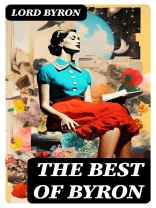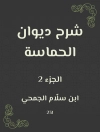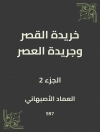In ‘The Best of Byron, ‘ the renowned Romantic poet Lord Byron compiles a selection of his most celebrated works, showcasing his mastery of verse and his innovative embrace of the lyrical form. With his characteristic blend of passionate emotion and sharp wit, Byron’s poetry navigates themes such as love, loss, nature, and the complexities of the human experience. Rich in imagery and structured with a blend of classic forms and inventive meter, this anthology illustrates Byron’s pivotal role in the evolution of 19th-century literature, standing as a testament to his influence on subsequent generations of poets and writers. Lord Byron, born George Gordon Byron in 1788, was not only a poet but a leading figure of the Romantic movement. His tumultuous life, marked by personal struggles, societal rebellion, and a voracious appetite for adventure, informed much of his writing. Byron’s exposure to the cultural upheaval of his time, combined with his own experiences of heartbreak and disillusionment, fueled his poetic voice and emotional depth, allowing him to connect profoundly with readers both then and now. ‘The Best of Byron’ is an essential collection for lovers of poetry and those interested in the Romantic era. Through Byron’s eloquent and often provocative verses, readers are invited to experience the unparalleled beauty and depth of emotion that has secured his place as one of literature’s most enduring voices. This anthology serves not only as an introduction to Byron’s work but also as a celebration of a poet who continues to resonate with the complexities of human emotion.
Circa l’autore
Lord Byron, born George Gordon Byron on January 22, 1788, stands as one of the most influential and celebrated poets of the Romantic movement. Heir to a noble lineage, Byron harnessed his aristocratic flamboyance into his literary career, which he commenced earnestly in 1807 with his maiden collection ‘Hours of Idleness.’ Criticism from the Edinburgh Review propelled him to assert his literary prowess with the satirical ‘English Bards and Scotch Reviewers’ in 1809. His extensive travels across Europe, particularly Greece and Italy, deeply informed his work, leading to the creation of the epic poem ‘Childe Harold’s Pilgrimage’—providing him significant acclaim. This semi-autobiographical narrative, along with dramatic works like ‘Manfred’ and the unfinished satire ‘Don Juan, ‘ are testaments to Byron’s intricate verse and fervent thematic exploration of love, social norms, and existentialism. ‘The Best of Byron’ encapsulates the quintessential gems from Byron’s oeuvre, showcasing his ability to merge the personal with the universal, the passionate with the intellectual. A leading figure of Romanticism, his literary style is characterized by lyrical expansiveness, emotional intensity, and a debonair yet melancholic tone. Despite his untimely death at the age of 36 while supporting the Greek War of Independence, Lord Byron’s work continues to resonate, embodying the tortured romantic hero archetype and influencing countless subsequent writers and poets. As a testament to his lasting legacy, his name remains synonymous with the passionate and rebellious spirit of the Romantic epoch.












